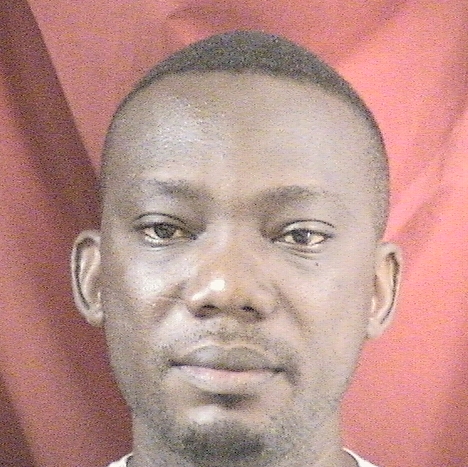Profile
Dr. Harry Barton Essel is an accomplished Associate Professor in Art Design and Educational Technology at the Department of Educational Innovations in Science and Technology, Kwame Nkrumah University of Science and Technology (KNUST). With a multidisciplinary approach, he also contributes to the Department of Publishing Studies and Integrated Rural Art and Industry, fostering collaboration across academic disciplines.
Born in Koforidua in Ghana’s Eastern Region, Dr. Essel’s academic journey began at the Seventh-Day Adventist Demonstration School, followed by Pope John Secondary School (now Pope John Senior High School), where he nurtured his passion for the arts. He pursued an undergraduate degree at KNUST’s Department of Publishing Studies, after which He served as a Teaching Assistant and Demonstrator. His scholarly pursuits culminated in a PhD in Art Education, earned through KNUST’s Vice-Chancellor’s Initiative Programme, where he conducted groundbreaking research on electronic submission systems for theses and dissertations in institutional repositories.
Leadership and Impact
Dr. Barton Essel has held several significant leadership roles, including:
- Examination Officer and Programmes Coordinator for Distance Learning in the Department of Educational Innovations in Science and Technology.
- Head of Department, Educational Innovations in Science and Technology.
- Faculty Examination Officer, Faculty of Educational Studies.
He also served as a visiting scholar, spearheading Ghana’s first interdisciplinary Human-Machine Interaction Programme in collaboration with Technische Universität (TU) Berlin. Currently, as Principal Investigator for the UNIHUBS Project Ghana—a collaboration between Erasmus University and KNUST—Dr. Essel is empowering university students with digital literacy and employability skills, enhancing their readiness for the evolving job market.
Research Expertise
Dr. Barton Essel’s research is driven by a passion for exploring the intersection of technology, education, and human behavior. His key focus areas include:
-
Artificial Intelligence Chatbots in Higher Education
Dr. Barton Essel investigates the integration of AI-driven conversational agents to enhance teaching and learning experiences in higher education. His studies focus on the effectiveness of AI chatbots in addressing students' academic needs, promoting engagement, and reducing administrative burdens for educators. -
Machine Learning Predictive Models in Education
Leveraging machine learning, Dr. Essel develops predictive models to forecast student performance, identify at-risk learners, and optimize teaching strategies. His work explores the potential of algorithms to provide actionable insights that improve learning outcomes. -
Educational Data Science
A pioneer in applying data science techniques to education, Dr. Essel analyzes big data to uncover patterns and trends in student behavior and learning processes. His research emphasizes the ethical use of data to enhance decision-making and personalize education. -
Cyberpsychology
Dr. Barton Essel delves into the psychological impacts of technology use, exploring phenomena like smartphone addiction, internet dependency, and cyberloafing. His work provides insights into how digital behaviors influence academic performance and well-being. -
Computational Thinking
Recognizing the growing importance of computational skills, Dr. Essel promotes the integration of computational thinking into curricula. His research explores effective strategies for teaching problem-solving and algorithmic reasoning in diverse educational settings. -
Emerging Technologies (Hybrid Flipped Course Design Model)
Dr. Barton Essel has innovated hybrid flipped classroom models, combining in-person and virtual learning environments. His work demonstrates how these models can increase student engagement and accommodate diverse learning preferences. -
Front-End Web Development
With expertise in programming languages such as HTML, CSS, JavaScript, Angular, and React, Dr. Essel investigates effective methods to teach web development to novice learners. He emphasizes hands-on approaches that build confidence and technical competence.
Dr. Barton Essel’s use of programming languages such as Python, R, and SQL enables him to manage and analyze large educational datasets. By employing tools like Jamovi for statistical analysis and machine learning algorithms for classification, regression, and clustering, he produces rigorous, impactful research. His work in teaching and learning analytics has advanced the development of diagnostic, descriptive, prescriptive, and predictive models tailored to educational needs.
Passion for Youth Development
Beyond academia, Dr. Barton Essel is dedicated to inspiring the next generation of innovators. He teaches programming to children aged 7–15 using visual programming languages like Scratch, fostering creativity and computational thinking skills among young learners.
Methodological Rigor and Scholarly Contributions
Dr. Barton Essel’s research methodology combines qualitative and quantitative approaches, including fuzzy-set Qualitative Comparative Analysis and advanced statistical techniques. His commitment to methodological rigor ensures his work addresses real-world challenges with precision and depth.
Visionary Leadership and Global Impact
As an academic leader, researcher, and mentor, Dr. Harry Barton Essel is shaping the future of education through innovative technologies and forward-thinking strategies. His work resonates across disciplines, bridging gaps between education, technology, and human behavior to inspire meaningful change.

